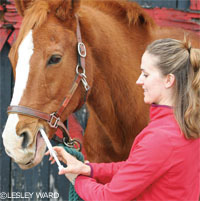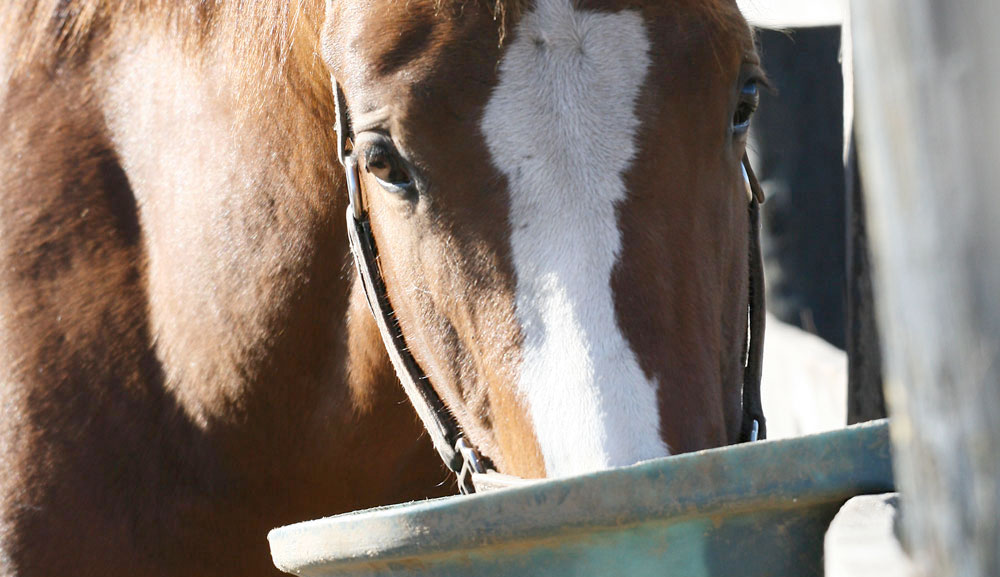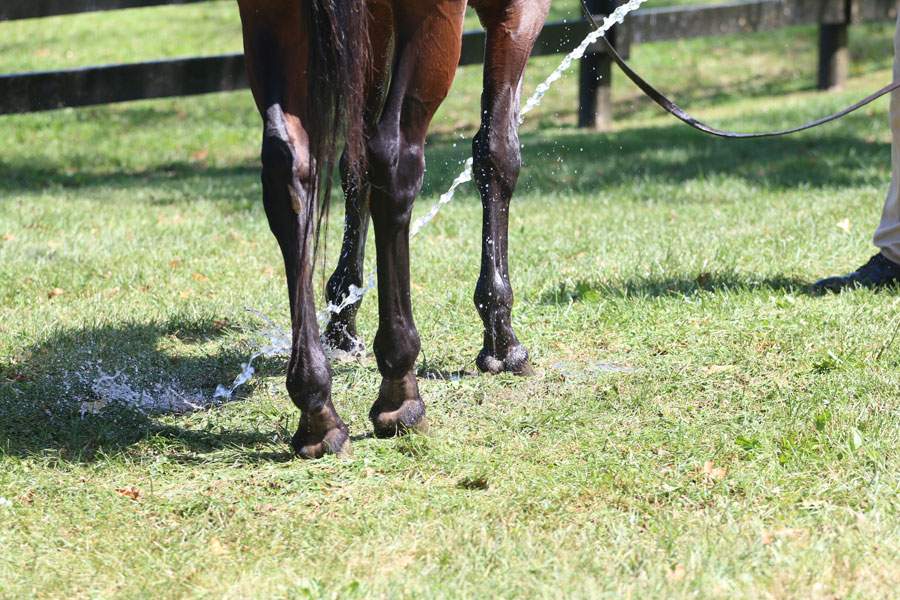Straight grains such as corn, oats and barley or sweet feed can contribute to the development of colic. Many bagged concentrates have high-fiber ingredients to be more gentle on digestive tracts.
Too Much Starch In Your Grain
If too much starch is fed in one meal, the small intestine can’t absorb all of it, so some spills over into the large intestine. This is not a good place for starch to be, since it leads to bacterial overgrowth and death of microorganisms that produce toxins that leach into the bloodstream when they die. These toxins are known to reduce intestinal motility.
Hydration Is Important
In addition, horses fed large grain meals are 15 percent less hydrated than horses fed a high-fiber diet; this adds to the possibility of impaction colic. Grains are also highly fermentable, generating more gas in the large intestine, which further slows intestinal motility. Distention (with gas or blockage) of the intestines leads to pain, cramping, and colic, and also the potential for intestinal displacements or twists.

Oats
Gastric ulcers—often resulting from high-grain diets—are the culprit of a variety of syndromes: behavioral changes, performance deficits, weight loss, and/or colic pain. (Tap here to learn more.)
When extra calories are needed, a high fat-and-fiber concentrate is much safer to feed than straight grains.
This article originally appeared in the June 2019 issue of Horse Illustrated magazine. Click here to subscribe!





